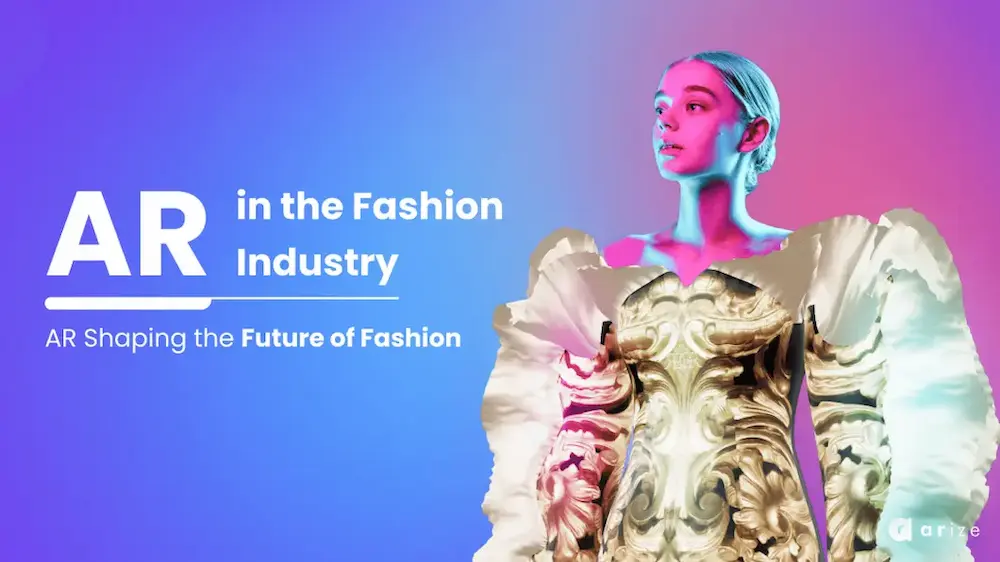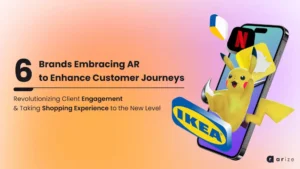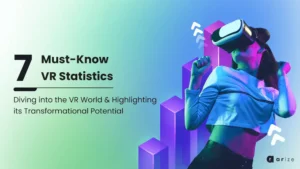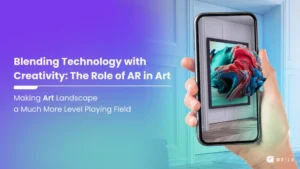Fashion is undeniably one of the world’s fastest-moving and most innovative industries. It is fitting that any new technology would make its way into one of the most consumer-engaging commerce sectors. Be it online or offline. Fashion retail seeks out the early adopters in anything judged to be the “next big thing.” This goes for its designs and its strategies. In today’s world, fashion cannot afford not to be part of the Augmented Reality movement. The global pandemic of 2020 changed the face of commerce forever, with more and more people moving online for their shopping experiences.
This was a huge issue for an industry that relied heavily on in-person engagement from its customer base, and fashion saw a 93% drop in economic profit from 2019 to 2020. Something had to be done.
This is why AR in the fashion industry is such a necessary evolution. Technological innovations are helping retailers and brands understand their customers better, give them higher-quality interactions, and tailor their products and experiences to them. This is as close to replicating the physical customer experience as we’ve ever been, and it can only improve.
Augmented Reality is already essential to the world of accessories. AR is a tool for new customer experiences by providing virtual try-on. People can try the latest sunglasses, jewelry, or handbags from the comfort of their homes, making them more likely to see their purchase through to the final stage and less likely to return items. With virtual try-on and smart mirrors, it will only expand and become more integral.
Numbers Don’t Lie…
The figures surrounding this phenomenon already tell the story of its success. While a survey showed 84% of customers moved into online shopping during the pandemic, most of these consumers were unhappy with the speed of the service and the lack of a personal and immersive experience online.
This would be why many brands have had such immediate dividends from bringing Augmented Reality into their business model. Sephora’s Virtual Artist Tool, an app that uses face tracking to scan your likeness and help you find the perfect look for you, was used by over 45 million people in the first two months of launch.
Improved customer engagement is only the tip of the iceberg. While providing consumers with a personal, more immersive experience is essential, giving an authentic shopping experience is also vital. A Shopify report across 11 different markets found that 71% of consumers would shop more frequently and spend extra on a product if they could “try it on” virtually.
It is essential because the more accurate a customer experience is, the less likely customers will want to return items or buy multiple sizes/styles to return all the ones they don’t pick.
Fashion brands received $428 billion in returned merchandise in 2020, with 24% being non-resalable. Several brands have found their return rates significantly reduced with the introduction of Augmented Reality. Shopify reported a 40% discount in returns, while department store behemoth Macy’s discovered their use of technology reduced returns to less than 2% (vs. an industry standard of 5-7%).
Considering the AR industry will be worth nearly $300 billion by 2024, consider integrating it into your business.
See it For Yourself
Many different brands already realize AR potential digitally. Some with the help of ARize and our cutting-edge AR technologies.
We have helped high-end contemporary lifestyle brands Charles and Ron bring their unique accessories to life through AR.
Check out the video below and see first-hand how AR in the fashion industry is a virtual style made real. Book an introductory call with us to create an outstanding experience for your fashion brand via https://arize.eden.com.co/businesses/.



